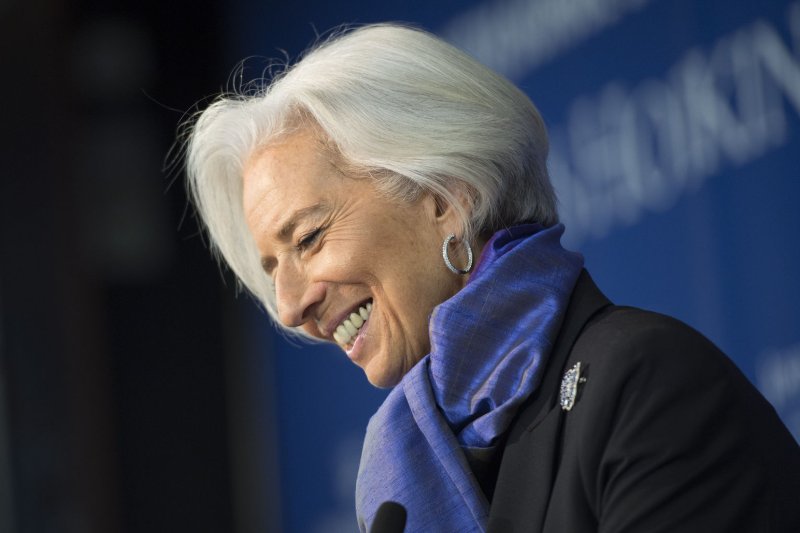WASHINGTON, April 2 (UPI) -- IMF chief Christine Lagarde said Russia's standoff with the U.S. and E.U. poses a threat to the global economy, which is still weak and growing slowly.
Lagarde was speaking at Johns Hopkins University, in advance of the International Monetary Fund and World Bank's spring meeting next week in Washington. She said that the political instability and tensions coupled with ultra-low inflation in developed countries and instability in developing markets could destabilize the global economic recovery.










